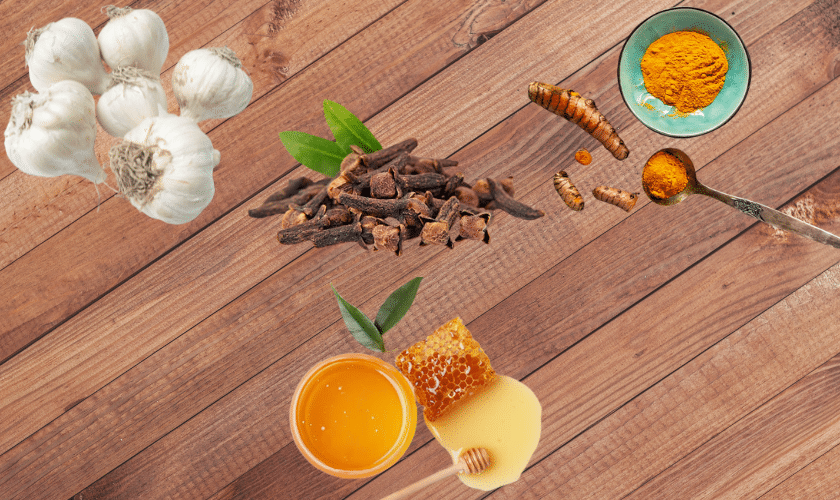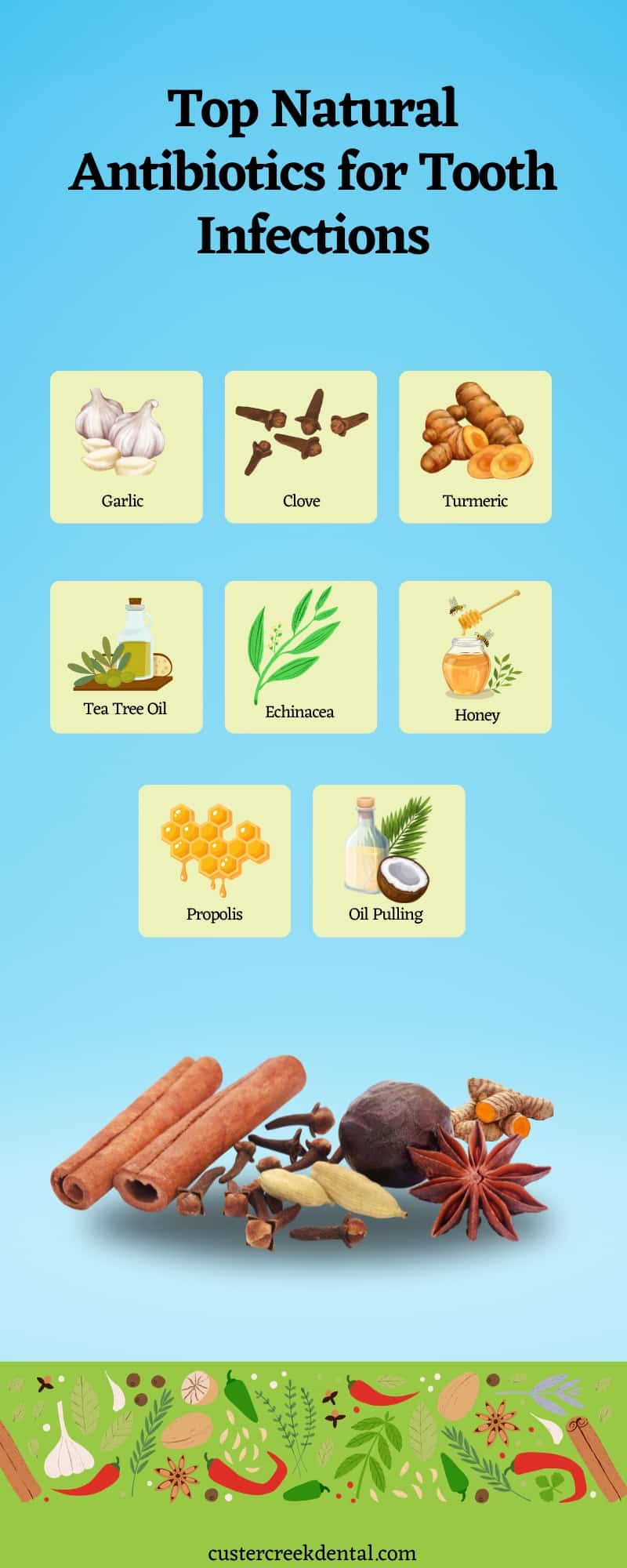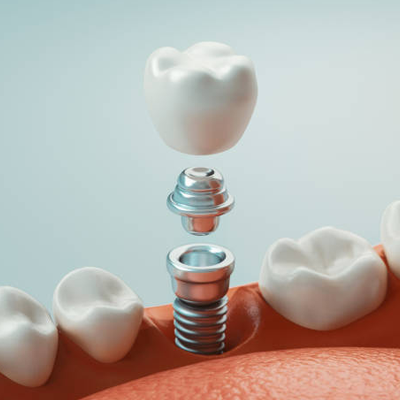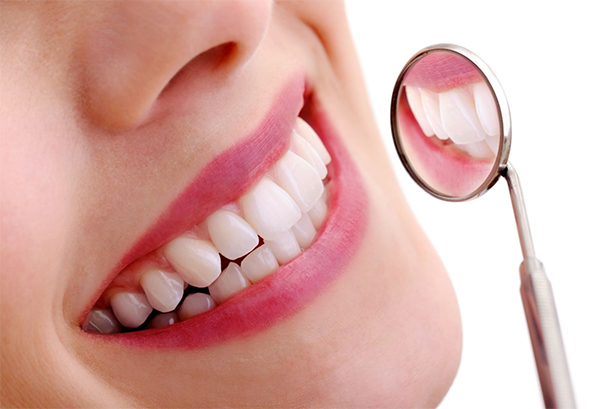
What Is The Strongest Natural Antibiotic For Tooth Infections?
When teeth are badly damaged, usually because of cavities, tooth infections frequently arise. Thankfully, natural medicines and root canal therapy are efficient ways to cure these infections. If left untreated, severe damage to a tooth can raise the risk of infection and possibly cause the dental pulp to die. Because of their strong antibacterial characteristics, natural antibiotics can play a critical role in managing and decreasing these illnesses. These organic compounds have the potential to both alleviate symptoms and fight dangerous microbes. This article will explore the best natural antibiotics for tooth infections and explain their efficacy.
Understanding Tooth Infections:
Before diving into natural remedies, it’s crucial to understand what a tooth infection entails. Tooth infections, also known as dental abscesses, occur when bacteria invade the pulp of the tooth, leading to inflammation and the accumulation of pus. Common symptoms include severe toothache, swelling, fever, and general discomfort. Without proper treatment, tooth infections can worsen and even spread to other parts of the body, posing serious health risks.
Are Antibiotics Always Necessary?
Strong drugs called antibiotics are made to fight infections, and they are frequently the main course of treatment. They are dependable and produce predictable results when used properly. Antibiotics, however, might not always be thought to be required for dental infections. This is because dead dental pulps are usually the source of these infections. When the pulp is left untreated, bacteria continue to proliferate and infect the surrounding tissues. As a result, although giving antibiotics may help the patient feel better, the infection might not completely go away. As a result, modern dentistry practices typically save the prescription for antibiotics for situations in which fever and face swelling are indicative of an infection. However, many foods, supplements, and natural materials have built-in antimicrobial qualities that may help treat the infection until the root canal is completed.
The Role of Antibiotics:
Since they aid in the eradication of bacteria and stop the illness from spreading, antibiotics are a common treatment for tooth infections. On the other hand, abuse of antibiotics can lead to antibiotic resistance, a condition in which bacteria develop resistance to the medications intended to eradicate them. Furthermore, some people may have adverse consequences including unsettled stomachs or allergic responses. Natural antibiotics offer an alternative approach, harnessing the power of plant-based compounds to combat bacterial infections effectively.
Top Natural Antibiotics for Tooth Infections:

Garlic:
Garlic has long been prized for its potent antibacterial properties. Allicin, a compound found in garlic, exhibits strong antimicrobial activity against a wide range of bacteria, including those responsible for oral infections. Incorporating raw garlic into your diet or applying crushed garlic directly to the affected tooth can help alleviate pain and fight infection.
Clove:
Clove oil is a popular remedy for toothaches and dental infections due to its analgesic and antimicrobial properties. Eugenol, the active ingredient in cloves, acts as a natural anesthetic, numbing the area and providing relief from pain. Additionally, cloves possess antibacterial properties that can help combat the underlying infection. Simply apply a small amount of clove oil to the affected tooth using a cotton swab for temporary relief.
Turmeric:
Turmeric is a vibrant yellow spice with potent anti-inflammatory and antimicrobial properties. Curcumin, the active compound in turmeric, has been shown to inhibit the growth of bacteria and reduce inflammation in the oral cavity. Incorporating turmeric into your diet or applying a paste made from turmeric powder and water directly to the affected tooth can help alleviate pain and promote healing.
Tea Tree Oil:
Tea tree oil is renowned for its powerful antimicrobial activity, making it a valuable tool in fighting tooth infections. Studies have shown that tea tree oil can effectively kill bacteria associated with dental plaque and gum disease. To use tea tree oil for dental infections, dilute a few drops in water and use it as a mouthwash or apply it directly to the affected area for targeted relief.
Echinacea:
A popular natural treatment of echinacea is well-known for strengthening the immune system. It contains compounds that stimulate the immune system and enhance the body’s ability to fight off infections. While more research is needed to confirm its efficacy specifically for dental infections, echinacea may help support overall oral health and reduce the risk of recurrent infections.
Honey:
Raw honey is not only delicious but also boasts antimicrobial properties that can help combat tooth infections. Manuka honey, in particular, contains high levels of methylglyoxal, a compound with powerful antibacterial effects. Applying a small amount of honey to the affected tooth or using it as a mouthwash may help reduce inflammation and promote healing.
Propolis:
Propolis is a resinous substance produced by bees that exhibits strong antimicrobial and anti-inflammatory properties. It has been used for centuries in traditional medicine to treat various ailments, including dental infections. Applying propolis tincture or extract to the affected tooth can help alleviate pain and inhibit the growth of bacteria.
Oil Pulling:
Oil pulling is an ancient Ayurvedic practice that involves swishing oil around in the mouth to improve oral health. Coconut oil, sesame oil, and sunflower oil are commonly used for oil pulling due to their antimicrobial properties. Swishing oil in the mouth for 15-20 minutes daily can help reduce plaque buildup, prevent tooth decay, and promote gum health.
While natural antibiotics can be effective in treating tooth infections, it’s essential to remember that they are not a substitute for professional dental care. If you’re experiencing symptoms of a tooth infection, such as severe pain or swelling, it’s crucial to seek the expertise of a qualified dentist. Dentists have the knowledge and tools necessary to diagnose and treat dental infections effectively, helping you regain your oral health and well-being. If you’re in the McKinney area, be sure to schedule an appointment with a trusted Dentist in McKinney for personalized care and treatment tailored to your needs. In the meantime, incorporating natural antibiotics into your oral care routine can provide relief from symptoms and support the healing process. Remember to consult with a healthcare professional before trying any new remedies, especially if you have underlying health conditions or are taking medications. With the right approach, you can effectively manage tooth infections and maintain optimal oral health for years to come.







